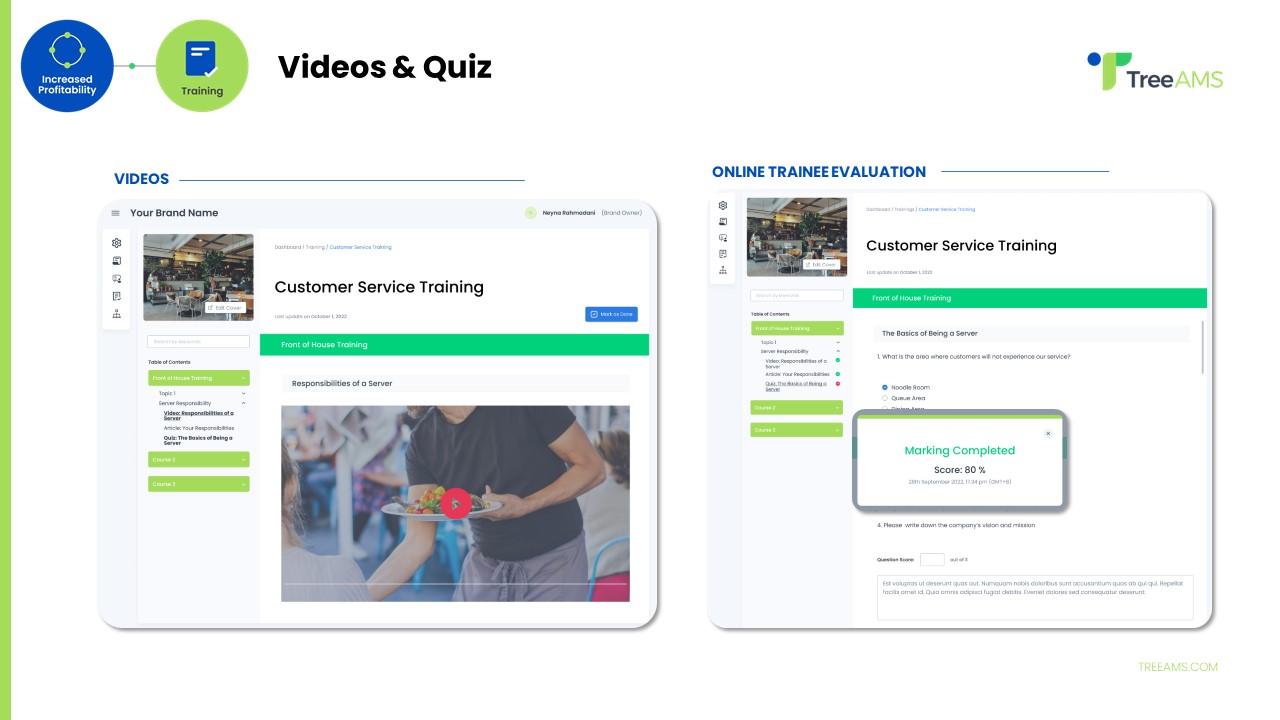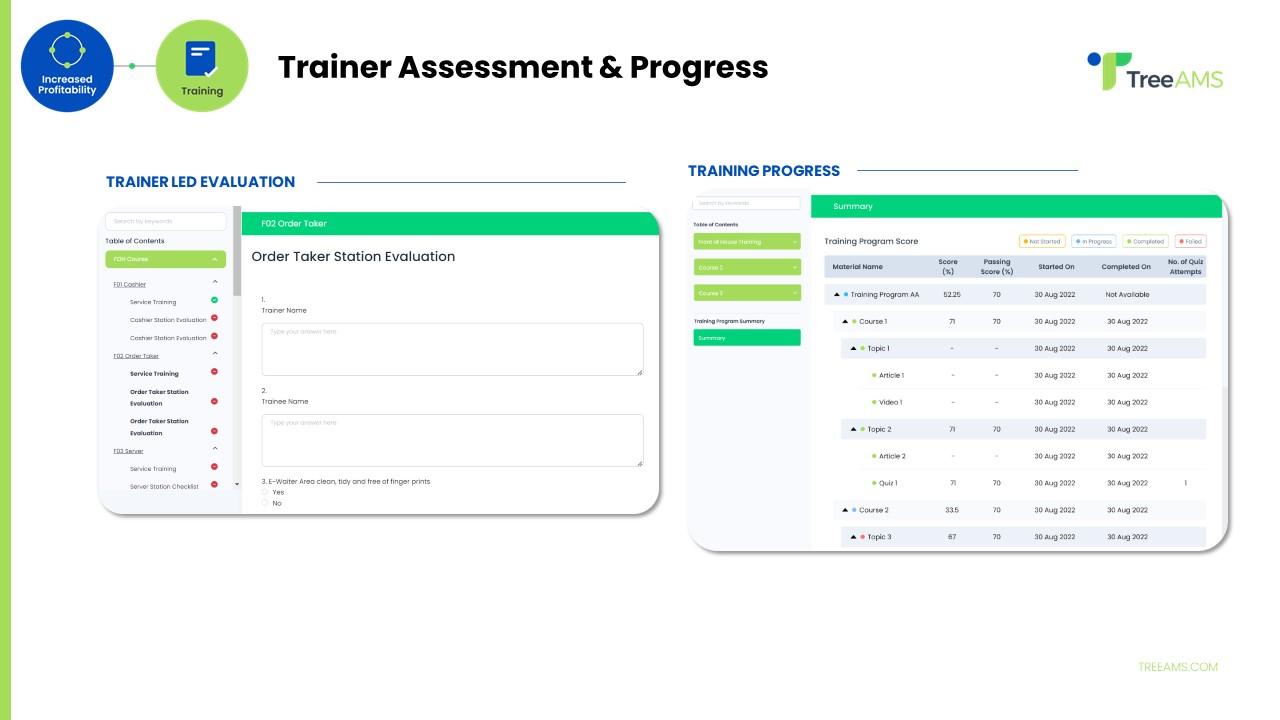Optimizing Employee Training Programs for Organizational Success: Embracing Skills-Based Learning
Launching an employee training program involves careful planning and consideration of several key areas to ensure its effectiveness and success.
Often, in the work environment, organizations focus on skill-based learning, emphasizing continuous learning to create a culture of ongoing skill development and adaptability. Skill-based learning helps cultivate real-world proficiencies that directly apply to job functions.
While knowledge remains fundamental, skills are the keys that translate knowledge into actionable outcomes.

Transforming potential into success with impactful training programs
Understanding Skills-Based Training Programs
Skills-based learning emphasizes practical competencies pertinent to specific job roles or industries. Unlike traditional knowledge-based approaches prioritizing theory, skills-based learning immerses learners in hands-on experiences.
Recognizing different learning styles in skills-based learning is crucial to ensure employees can effectively develop their competencies.
Advantages of Skills-Based Learning
By engaging learners through interactive and practical methods, skills-based learning enhances comprehension, retention, and application.
It fosters a learning environment where employees develop capabilities that directly contribute to organizational success. Skills-based learning also allows employees to learn at their own pace.
This strategic approach meets current industry demands and prepares employees for future challenges.

Key Considerations for Launching a Training Program
- Identify Training Needs: Conduct a thorough assessment to determine the specific skills and knowledge gaps within your organization.
- Align Training with Business Objectives: A well-structured development program can help achieve overall business goals and strategic priorities.
- Define Clear Objectives: Establish clear and measurable learning objectives that outline what participants should be able to accomplish by the end of the training program.
- Set Performance Expectations: Define expected outcomes in terms of improved performance, productivity, or behavior changes.
- Understand Learner Profiles: Analyze the characteristics, skill levels, learning preferences, and motivations of the trainees
- Curriculum Design: Develop a structured curriculum that covers essential topics, incorporates relevant industry standards, and addresses identified skill gaps. Consider whether to design internal training programs or hire a professional company.
- Use Hybrid Delivery Methods: Include trainer-led sessions, eLearning modules, webinars, On The Job Training, or blended learning approaches.
- Use Assessments: Once technical training has been conducted, conduct post-training evaluations to assess learning outcomes, gather participant feedback, and measure the training’s impact on performance improvement.
- Leverage Technology to ensure access to technical support and assistance with training platforms or tools to minimize disruptions during sessions.
- Track progress before, during, and after the training program to address concerns and improve engagement.
The Role of Employee Training in Franchise Success
Effective training is crucial for maintaining consistency and quality across all franchise locations. It ensures that procedures are standardized, upholding the brand’s reputation and customer experience.
According to the International Franchise Association, 94% of franchise systems provide initial training to their franchisees, and franchises with robust training programs see a 20% higher success rate.
Additionally, utilizing a Learning Management System can streamline skills-based training and boost organizational success.
The Missing Link
Inadequate employee training often leads to operational inefficiencies and brand inconsistencies, potentially damaging the franchisor’s reputation.
Effective training upholds the brand’s integrity and aligns each unit with its core values and mission, supporting overall growth and sustainability.
.jpg)
Introducing the TreeAMS Hybrid Training Program
The TreeAMS Hybrid Program provides a flexible, comprehensive training and development program tailored to franchise employees’ needs.
This program combines online and in-person training to streamline basic knowledge acquisition, allowing mentors and trainers to focus on achieving measurable outcomes.
With the Digital Training Program, all information from individual employee performance to outlet training can be tracked on a single platform.
As a franchisor, you can always monitor the training progress of your franchisees and their employees. Additionally, you can set specific training programs for each role.
Key Features
- Flexible Learning Modes: Both online and in-person training options accommodate diverse learning preferences and schedules.
- Reduced Training Time: Efficiently covers essential knowledge, freeing up time for mentors and trainers to concentrate on outcome-driven training.
- Formative Assessments: Includes multiple-choice, fill-in-the-blank, short answer, essay, true or false, and other assessment types to gauge understanding and ensure employees meet the required standards.
- Comprehensive Digital Tracking: Tracks individual employee performance and outlet training on a single platform, providing franchisors with real-time insights into training progress and knowledge acquisition.
- Benchmark Scoring: Establishes clear benchmarks for knowledge acquisition, providing franchisors with measurable and consistent training outcomes across all franchise locations.

TreeAMS Trainer-Led Evaluation & Employee Training Program
This program offers a holistic, practical approach akin to on-the-job training. Through trainer-led evaluations, franchisors receive comprehensive feedback and assessments from experienced trainers.
The program meticulously measures individual training progress, offering valuable insights for vertical and horizontal development within the franchise network.

Employee Training Program Success Story
ISteaks, a valued TreeAMS client, effectively rolled out more than 150 employee training programs on the platform for their corporate outlets and franchisees, showcasing the importance of a robust training program for success.
If Not Now, Then When?
With leadership support, franchisors can tackle these crucial areas to launch impactful training and development programs that drive organizational growth and success.
TreeAMS offers a comprehensive platform to facilitate the implementation of this skill-based training, offering content delivery, pre and post-evaluations, program scaffolding, trainer-led evaluations, certification, and performance scorecards to deliver the transformative impact of skills-based learning.
This holistic approach not only enriches employee knowledge but equips them with practical abilities essential for their roles.


.png)



